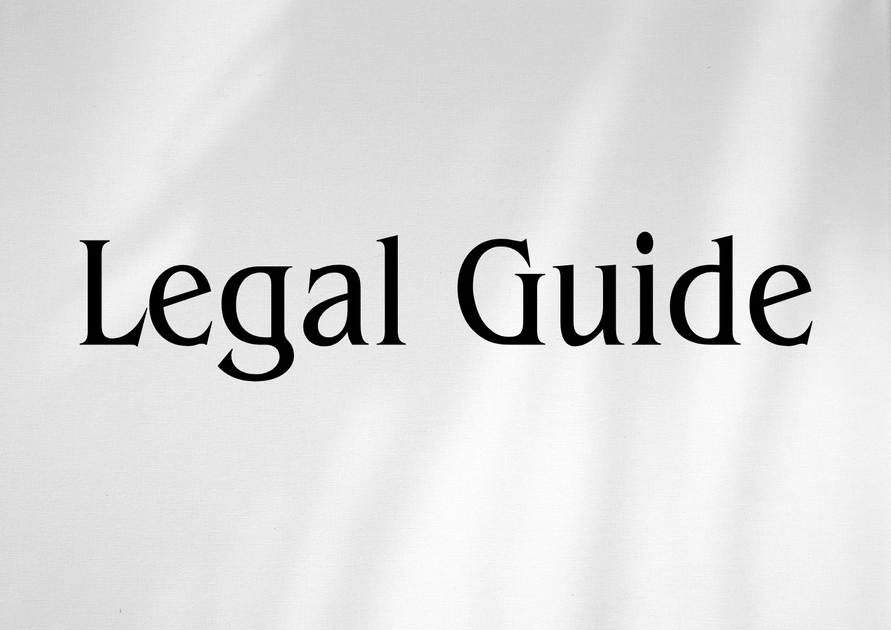Introduction: The Strategic Role of DIAC in the UAE’s Legal Framework
The Dubai International Arbitration Centre (DIAC) stands as the UAE’s premier arbitral institution, reflecting the nation’s global ambition to offer reliable alternatives to traditional litigation. In recent years, the UAE has solidified its stature as a world-class hub for commercial arbitration by modernizing its arbitration framework, most notably through the updated DIAC Rules (in force from March 2022) and alignment with Federal Law No. 6 of 2018 on Arbitration. For businesses, executives, HR professionals, and legal practitioners, understanding DIAC’s current rules and procedures is indispensable for risk mitigation and strategic contract management. Amid the UAE’s rapidly evolving legal climate—marked by continuous regulatory updates—the ability to leverage DIAC’s mechanisms enables parties to resolve disputes efficiently and confidentially in a pro-business environment. This article delivers an in-depth, consultancy-level analysis of DIAC’s framework, offering practical insights, recent changes, and professional guidance on compliance, risk, and effective dispute resolution in the UAE.
Table of Contents
- Overview of DIAC and the Legal Landscape for Arbitration in the UAE
- Governing Structure and Key Provisions of DIAC Rules
- Notable Updates in the 2022 DIAC Rules
- Case Studies and Hypotheticals: DIAC in Action
- Risks of Non-Compliance and Best Practice Compliance Strategies
- Future Outlook and Practical Guidance for UAE-based Businesses
- Conclusion: Key Takeaways and Strategic Recommendations
Overview of DIAC and the Legal Landscape for Arbitration in the UAE
The Historical Significance and Evolution of DIAC
Established in 1994 under the auspices of the Dubai Chamber of Commerce & Industry, DIAC has emerged as one of the Middle East’s most reputable arbitral bodies. The UAE’s enactment of Federal Law No. 6 of 2018 (the Arbitration Law), based substantially on the UNCITRAL Model Law, set the modern foundation for arbitration—ensuring enforcement of arbitral awards and harmonization with international best practices.
In September 2021, Decree No. 34 of 2021 Concerning the Dubai International Arbitration Centre significantly reshaped the institutional landscape by consolidating the Emirates Maritime Arbitration Centre (EMAC) and the DIFC-LCIA Arbitration Centre under DIAC’s remit. The consolidation, which became operational in March 2022, aims to streamline arbitration services and reinforce Dubai’s global arbitration profile.
Legal Basis for DIAC Arbitration
Arbitrations under DIAC are governed by:
- DIAC Arbitration Rules (as amended March 2022)
- Federal Law No. 6 of 2018 on Arbitration
- Relevant Cabinet and Ministerial Resolutions (for example, procedures for enforcement in UAE courts)
These legal instruments collectively ensure that arbitration awards issued in DIAC proceedings have binding legal force and are enforceable through UAE courts, positioning DIAC as a trusted choice for parties seeking certainty and neutrality.
Why Arbitration—and DIAC in Particular—Matters for UAE Stakeholders
For UAE-based and international stakeholders, DIAC offers several strategic advantages:
- Neutrality and Confidentiality: Unlike court proceedings, DIAC ensures confidential resolution by impartial tribunals.
- Enforceability: DIAC awards are enforceable under the UAE Arbitration Law and pursuant to the UAE’s accession to the New York Convention (Federal Decree No. 43 of 2006).
- Customizability and Efficiency: Procedural flexibility and specialized arbitrators allow parties to tailor arbitration to the nuances of their disputes.
- Supportive Legal Framework: Recent legal reforms provide robust support for the recognition and enforcement of arbitral awards.
Governing Structure and Key Provisions of DIAC Rules
Institutional Structure Post-Decree No. 34 of 2021
Following Decree No. 34 of 2021, DIAC operates as a consolidated institution, managed by an independent Board of Directors with an autonomous Executive Committee. DIAC’s Secretariat administers arbitral proceedings, ensuring both adherence to rules and efficiency across all matters (see Figure 1).
[Visual Suggestion: Organizational flowchart of current DIAC governance structure]
Principal Provisions of the 2022 DIAC Rules
The DIAC Rules 2022 codify best practices in international arbitration and introduce key features:
- Scope of Application: The Rules apply where parties have agreed to DIAC arbitration in their contract. Parties can also opt for these rules in ad hoc arrangements.
- Commencement: Proceedings commence upon the Secretariat’s receipt of the Request for Arbitration and confirmation of the applicable registration fee.
- Seat of Arbitration: Flexibility to seat arbitrations in onshore Dubai (UAE courts’ supervisory jurisdiction) or in the DIFC (common law, DIFC Courts’ jurisdiction).
- Appointment and Challenge of Arbitrators: Parties may agree on the number and selection method of arbitrators. In their absence, DIAC makes appointments, ensuring impartiality and independence.
- Expedited Proceedings: Disputes under AED 1 million, or with mutual agreement, may be resolved in six months via a streamlined process.
- Interim Measures and Emergency Arbitrator: Parties may access urgent relief (ex parte orders) to protect assets or evidence prior to full tribunal constitution.
- Multi-Party and Multi-Contract Procedures: Enhanced joinder and consolidation provisions enable efficient handling of complex, multi-party disputes.
- Costs and Fees: Transparent schedules for administration and arbitral fees provide predictability and facilitate budgeting.
Comparison Table: Old vs New DIAC Rules
| Aspect | DIAC Rules 2007 | DIAC Rules 2022 |
|---|---|---|
| Emergency Arbitration | Not provided | Available (Art. 32) |
| Expedited Proceedings | Not specified | Defined process (Art. 32.4) |
| Consolidation/Joinder | Limited | Detailed multi-party provisions (Art. 8, 9) |
| Costs Transparency | Basic fee schedule | Enhanced schedules, case management fee |
| Governing Language | Default Arabic (unless agreed) | More flexibility, default English for international cases |
Practical Implications for Arbitration Agreements
It is essential for businesses to ensure their arbitration agreements clearly incorporate the latest DIAC Rules. Checklist:
- Express reference to DIAC as the administering institution
- Clarity on the seat of arbitration (Dubai onshore or DIFC)
- Specifying arbitrator language, number, and qualification
- Inclusion of relevant escalation or pre-arbitral negotiation clauses
Notable Updates in the 2022 DIAC Rules
Emergency Measures and Expedited Arbitration
The 2022 Rules empower parties to seek interim relief through an emergency arbitrator (Article 32), mirroring leading international arbitration regimes and supporting rapid asset protection. Expedited proceedings (Article 32.4) permit swift resolution with a sole arbitrator, ideal for lower-value or time-sensitive disputes.
Flexibility in Seat and Governing Law
The Rules recognize the unique position of the DIFC, aligning with recent Cabinet Resolutions on offshore jurisdiction and recognizing the DIFC Courts as a supervisory authority. Parties can select DIFC as the seat, even for onshore contracts—an invaluable mechanism for those seeking internationally recognized, common law-based supervision and enforcement.
Joined and Consolidated Proceedings
Articles 8 and 9 offer robust opportunities for efficiency where disputes cut across multiple parties or contracts. This provision is especially relevant for construction, energy, and complex joint venture cases.
Case Studies and Hypotheticals: DIAC in Action
Case Study 1: Construction Consortia Dispute
Scenario: A UAE-based developer, a main contractor, and multiple subcontractors become embroiled in overlapping liability claims. The parties’ contracts reference DIAC arbitration but differ on seat and language.
Impact of 2022 Rules: Parties can now petition for consolidation of all related disputes into a single proceeding (Article 8), and DIAC’s Secretariat clarifies that English is accepted as the governing language. Expedited proceedings may also apply for discrete claims.
Case Study 2: Emergency Relief in Healthcare Ventures
Scenario: An offshore investor faces misappropriation of trade secrets by a Dubai-based clinic, threatening both IP and market position. Swift action is needed pending final resolution.
DIAC Solution: The party immediately seeks an emergency arbitrator (Art. 32), obtaining interim relief within days—substantially limiting business risk and demonstrating the DIAC process’s agility.
Table: Compliance Checklist for DIAC Arbitration Agreements
| Checklist Item | Best Practice Guidance |
|---|---|
| Institution Reference | “All disputes shall be resolved under the 2022 DIAC Rules.” |
| Seat of Arbitration | Specify: “The seat shall be Dubai, UAE” or “DIFC, Dubai” as appropriate. |
| Arbitrator Selection | Number and expertise to be set out clearly. |
| Language | Agree on language (English or Arabic) to avoid later disputes. |
| Escalation Clause | Include negotiation or mediation steps before arbitration if desired. |
Risks of Non-Compliance and Best Practice Compliance Strategies
Risks of Failing to Adhere to DIAC Rules or UAE Arbitration Laws
- Unenforceable Awards: Flawed arbitration clauses or procedural missteps may render awards vulnerable to challenge in UAE courts.
- Jurisdictional Disputes: Unclear references to DIAC or ambiguous seat/language provisions can delay proceedings and increase costs.
- Loss of Confidentiality: Failure to properly invoke DIAC’s framework may lead to inadvertent public exposure of sensitive disputes.
- Increased Costs and Delays: Non-compliance often results in satellite litigation or the need to restart arbitration.
Strategies for Ensuring Legal Compliance and Optimizing DIAC Processes
- Legal Review of Contracts: Engage legal experts to audit arbitration provisions for clarity and enforceability.
- Pre-Arbitration Mediation: In line with UAE government initiatives (e.g., Ministry of Justice mediation programs), consider multi-tiered dispute resolution to narrow issues before arbitration.
- Timely Payment of Fees: Ensure adherence to DIAC’s schedule of costs to maintain procedural momentum.
- Early Appointment of Counsel: Secure experienced UAE arbitration lawyers familiar with both onshore and DIFC procedures.
Visual Suggestion: Table of Common Pitfalls and Remedies
| Typical Pitfall | Impact | Recommended Remedy |
|---|---|---|
| Ambiguous arbitration clause | Delays, jurisdictional challenges | Contract review; redrafting in line with 2022 DIAC Rules |
| No specified seat/language | Disputes over procedure, forum | Amend contract to specify seat/language |
| Failure to pay fees timely | Proceedings halted or dismissed | Document fee schedules and internal controls |
| Ineffective counsel | Poor presentation, non-compliance with rules | Retain specialized UAE arbitration practitioners |
Future Outlook and Practical Guidance for UAE-based Businesses
Key Trends Shaping UAE Arbitration (2024–2025 and Beyond)
- Increasing Reliance on Institutional Arbitration: The complexity of cross-border contracts and the UAE’s economic diversification are driving greater recourse to DIAC.
- Technology-Enabled Proceedings: DIAC’s technology adoption—such as online submissions and virtual hearings—aligns with best practices and increases access, especially in the post-pandemic era.
- Alignment with UAE Economic Vision: Government portals such as MOHRE and Ministry of Justice continue to update guidance, signaling regular review and enhancement of dispute resolution frameworks.
Best Practices: Proactive Steps for Businesses
- Embed clear DIAC arbitration clauses in all contracts, with explicit reference to the 2022 Rules.
- Establish internal protocols for dispute escalation and documentation—anticipating possible arbitration.
- Train relevant staff in DIAC processes, time limits, and record-keeping requirements.
- Keep abreast of federal legal updates via the UAE Government Portal and the Legal Gazette.
Conclusion: Key Takeaways and Strategic Recommendations
DIAC’s current framework—anchored by robust federal legislation and improved institutional rules—offers an efficient, neutral, and business-friendly platform for commercial dispute resolution within Dubai and across the UAE. As the regulatory environment evolves, organizations must re-audit their dispute resolution strategies, ensure compliance with the latest DIAC rules, and seek continuous legal counsel. By doing so, parties position themselves to resolve disputes efficiently, safeguard their interests, and capitalize on the UAE’s pro-arbitration ethos.
In conclusion, as the UAE continues to modernize its legal sector, DIAC remains a cornerstone for promoting investor confidence and commercial certainty. Firms and individuals should align contract drafting, dispute preparedness, and compliance management with these best-in-class standards to secure business continuity and minimize risk.
[Visual Suggestion: Infographic of DIAC arbitration timeline, from filing to award]




